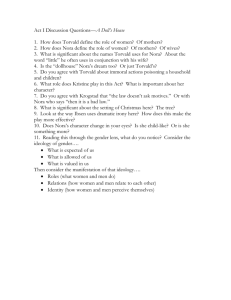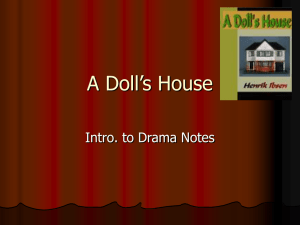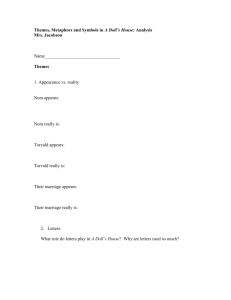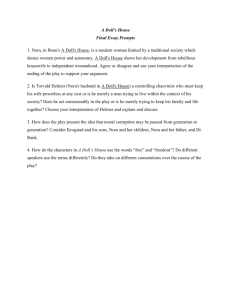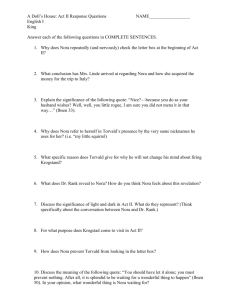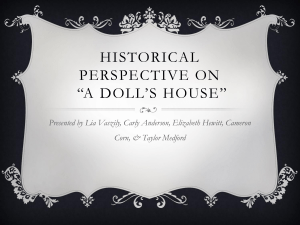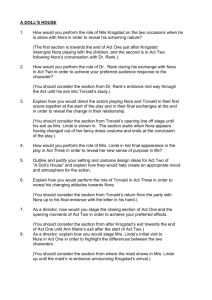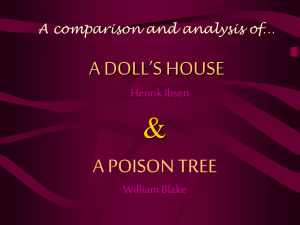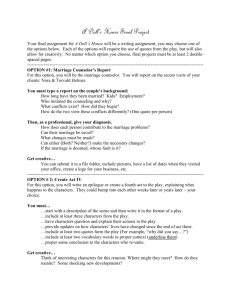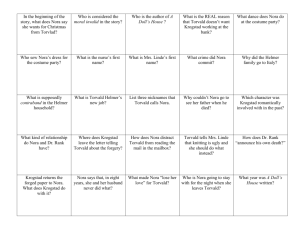A Doll's House Themes Analysis | Study Guide
advertisement
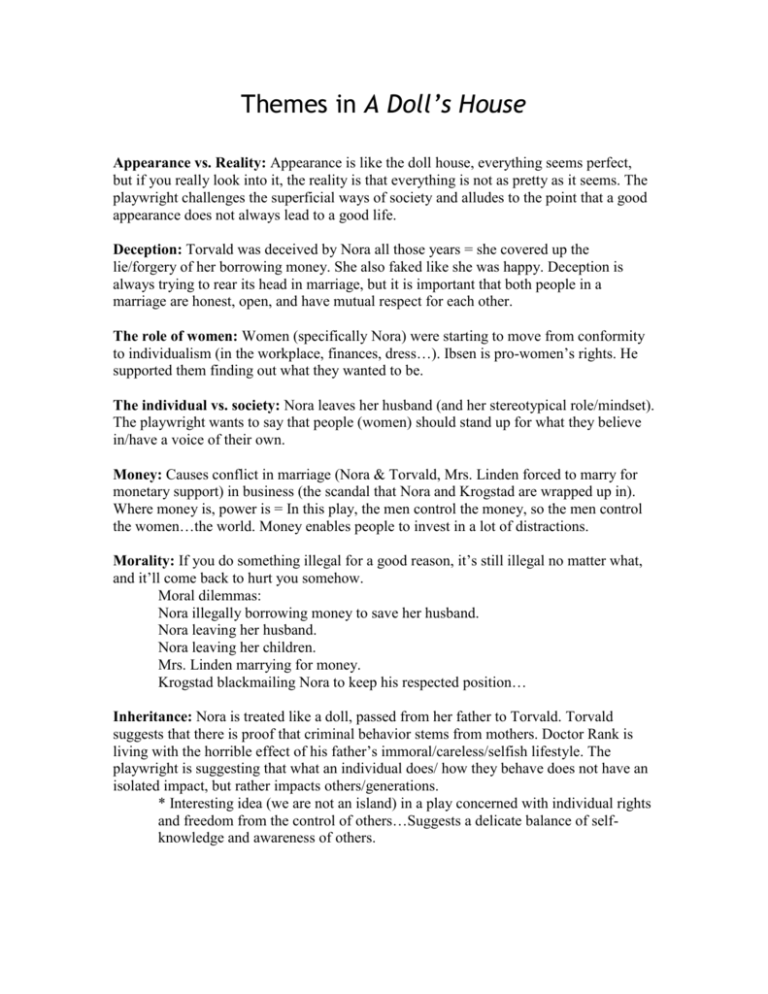
Themes in A Doll’s House Appearance vs. Reality: Appearance is like the doll house, everything seems perfect, but if you really look into it, the reality is that everything is not as pretty as it seems. The playwright challenges the superficial ways of society and alludes to the point that a good appearance does not always lead to a good life. Deception: Torvald was deceived by Nora all those years = she covered up the lie/forgery of her borrowing money. She also faked like she was happy. Deception is always trying to rear its head in marriage, but it is important that both people in a marriage are honest, open, and have mutual respect for each other. The role of women: Women (specifically Nora) were starting to move from conformity to individualism (in the workplace, finances, dress…). Ibsen is pro-women’s rights. He supported them finding out what they wanted to be. The individual vs. society: Nora leaves her husband (and her stereotypical role/mindset). The playwright wants to say that people (women) should stand up for what they believe in/have a voice of their own. Money: Causes conflict in marriage (Nora & Torvald, Mrs. Linden forced to marry for monetary support) in business (the scandal that Nora and Krogstad are wrapped up in). Where money is, power is = In this play, the men control the money, so the men control the women…the world. Money enables people to invest in a lot of distractions. Morality: If you do something illegal for a good reason, it’s still illegal no matter what, and it’ll come back to hurt you somehow. Moral dilemmas: Nora illegally borrowing money to save her husband. Nora leaving her husband. Nora leaving her children. Mrs. Linden marrying for money. Krogstad blackmailing Nora to keep his respected position… Inheritance: Nora is treated like a doll, passed from her father to Torvald. Torvald suggests that there is proof that criminal behavior stems from mothers. Doctor Rank is living with the horrible effect of his father’s immoral/careless/selfish lifestyle. The playwright is suggesting that what an individual does/ how they behave does not have an isolated impact, but rather impacts others/generations. * Interesting idea (we are not an island) in a play concerned with individual rights and freedom from the control of others…Suggests a delicate balance of selfknowledge and awareness of others.
